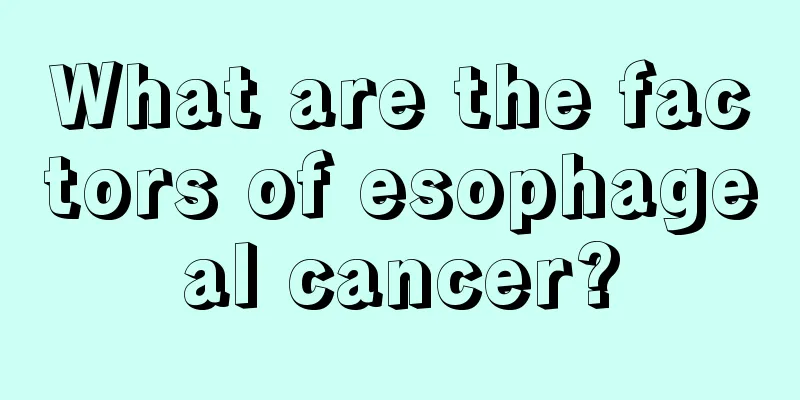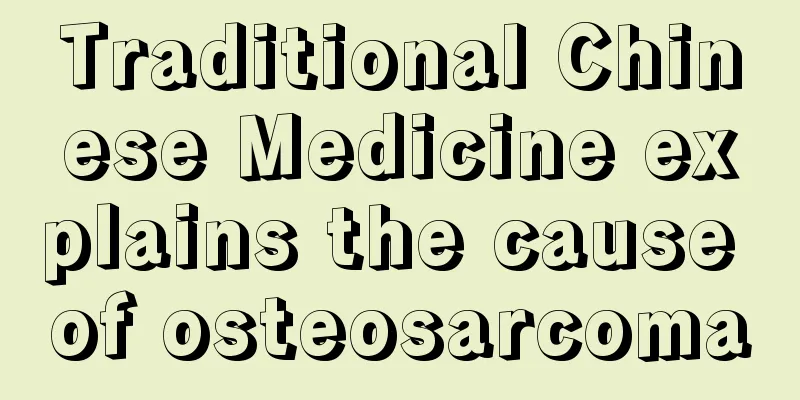What are the factors of esophageal cancer?

|
Esophageal cancer is a relatively common disease, because the incidence of esophageal cancer has been increasing in recent years. Experts say that if you want to prevent the occurrence of esophageal cancer, you must understand what factors cause esophageal cancer, which is also quite important. Let's take a look at the experts' introduction. Eating habits, long-term smoking and drinking strong alcohol, long-term consumption of hot food, hard food without chewing, etc. are inevitably related to the cause of esophageal cancer. Carcinogens are also one of the causes of esophageal cancer. Precancerous lesions and other disease factors such as chronic esophageal inflammation, esophageal epithelial hyperplasia, esophageal mucosal damage, esophageal diverticulum, esophageal ulcer, esophageal leukoplakia, esophageal scar stenosis, hiatal hernia, achalasia, etc. are all considered to be precancerous lesions or precancerous diseases of esophageal cancer. (1) Trace elements and malnutrition: The serum molybdenum, hair molybdenum, urine molybdenum and molybdenum in esophageal cancer tissues of people in high-incidence areas of esophageal cancer are all lower than normal. The soil and water in high-incidence areas of esophageal cancer lack molybdenum, and the anti-cancer effect of molybdenum has been confirmed by most scholars. Malnutrition, insufficient intake of animal protein and lack of vitamins AB2C are common characteristics of the diet of residents in high-incidence areas of esophageal cancer. Most high-incidence areas of malnutrition do not have a high incidence of esophageal cancer, so this cannot be a dominant factor. (2) Mold carcinogenic factors: Eating moldy food can induce precancerous lesions or squamous cell carcinoma of the esophagus and stomach in mice. This type of mold has a synergistic effect with nitrosamines in promoting cancer. (3) Damage to the esophageal mucosa: Long-term consumption of hot and coarse food, strong tea, and spicy foods such as chili peppers can cause damage to the esophageal mucosa, causing esophageal mucosal hyperplasia and metaplasia, which may also be a carcinogenic factor. Smoking and drinking strong alcohol are inevitably related to the onset of esophageal cancer. Various long-term esophagitis may be precancerous lesions of esophageal cancer. Nutrition, vitamins and trace elements. Lack of certain vitamins and trace elements is one of the causes of esophageal cancer. Esophagitis, atypical cell hyperplasia and severe hyperplasia are common in high-incidence areas, which is related to the low intake of protein, fruits and vegetables in high-incidence areas. Mold is also a cause of esophageal cancer. Various molds have been isolated from sauerkraut, steamed corn bread and cornmeal in high-incidence areas. The mold contamination rate of grain is significantly higher than that in low-incidence areas. The holly creeping mold and alternariae separated from grain have a mutagenic effect, and the toxins produced can cause chromosomal aberrations. Molds and nitrosamines have a synergistic carcinogenic effect. Experts say that patients who are not awake after general anesthesia should lie flat with their heads turned to one side to prevent oral secretions from being inhaled into the trachea. Patients who have undergone subarachnoid anesthesia should lie flat without a pillow or with their heads lowered for 6 hours to prevent low intracranial pressure headaches. This is one of the nursing procedures for esophageal cancer. After waking up from anesthesia, patients should choose a body position according to the surgery. Generally, esophageal cancer patients mostly adopt a high semi-recumbent position to facilitate breathing. The nursing care for esophageal cancer should be based on the patient's comfort, the physiological activities of the internal organs, and the convenience of the patient to do appropriate activities. When the anesthesia effect has completely disappeared and the patient is fully awake, the patient should be encouraged to move in bed, such as deep breathing, active movement of the limbs, intermittent turning over, etc. Getting up and moving early, gradually increasing the amount of activity according to the patient's tolerance level is also a nursing measure for esophageal cancer. The above is an introduction to the causes of esophageal cancer. I hope it will be helpful to everyone. Experts also said that in daily life, we must learn more about the causes of esophageal cancer so that we can take timely treatment. Only in this way can we effectively prevent and treat esophageal cancer. In addition, patients should also pay attention to understanding the knowledge of the disease. |
<<: What causes stomach pain in esophageal cancer
>>: What to do if esophageal cancer recurs six months after surgery
Recommend
What are the symptoms of advanced pancreatic cancer in patients
The symptoms of pancreatic cancer in the late sta...
What is the difference between the symptoms of esophageal polyps and esophageal cancer
The difference in symptoms between esophageal pol...
What foods are beneficial to patients with osteosarcoma
Some osteosarcoma patients, after getting the dis...
Is throat thyroid serious?
The thyroid gland is an organ in the human body. ...
Do you usually wear underwear when wearing a swimsuit?
Many girls are still struggling with the question...
What's going on when there's yellow and sticky stuff in the nose?
It is usually caused by rhinitis. Thick nasal dis...
What is the matter with bifurcated pee
Some people's urine forms a vertical column, ...
How much does the second item of ovarian cancer cost
The specific cost is difficult to determine, whic...
Why do I feel a little uncomfortable in my lower right abdomen?
The right lower abdomen is on the right side belo...
How to treat cervical calcification, treat according to the cause
There are many reasons for cervical calcification...
What foundation should I use for dry skin
Human skin has many characteristics. According to...
A bottle of cold water can easily distinguish real and fake honey
Experts pointed out that in terms of physical and...
What are the symptoms of depression? Do you suffer from insomnia?
Most patients suffering from depression are young...
What is the difference between sanitary napkins and tampons
Although we often see tampons in the feminine pro...
Conservative treatment for prostate cancer
Prostate cancer has become a common malignant tum...









